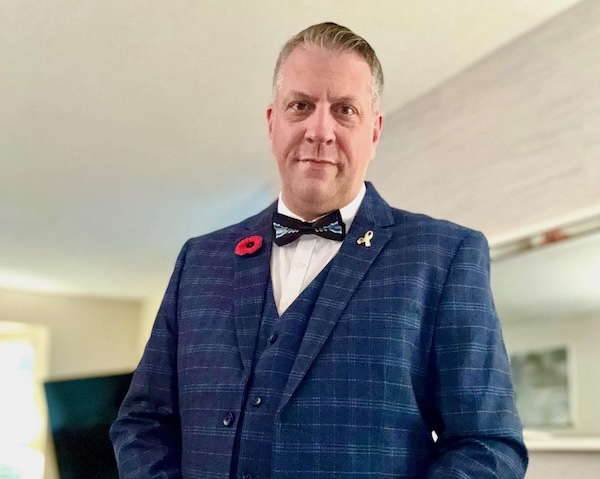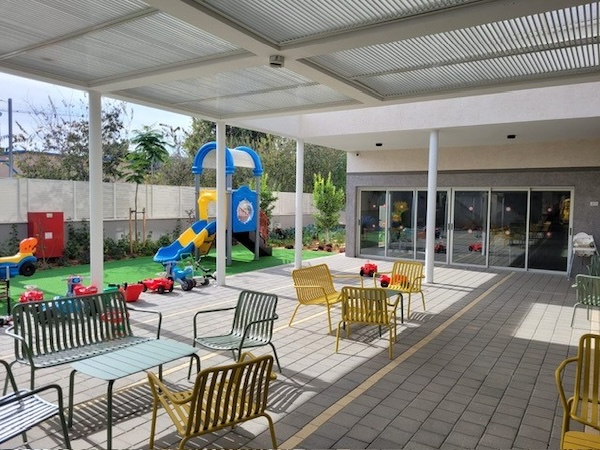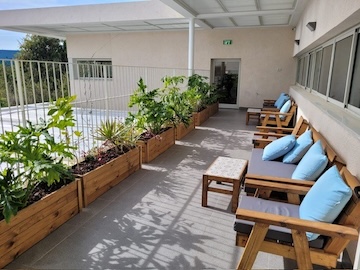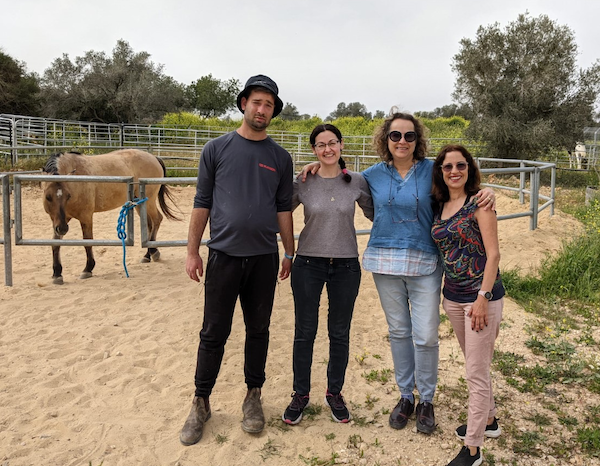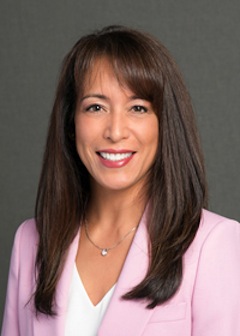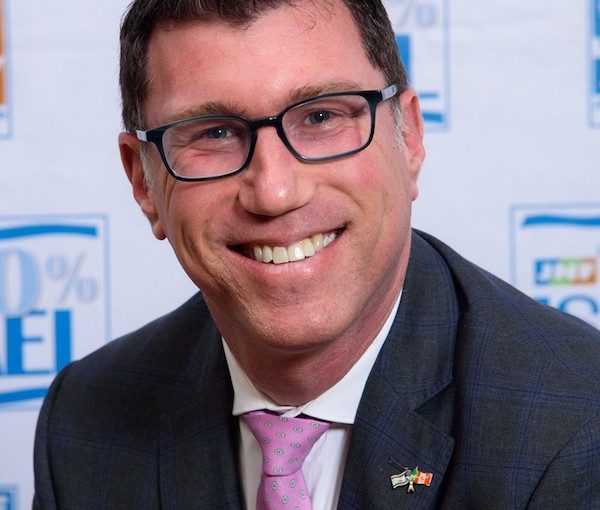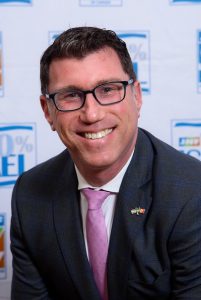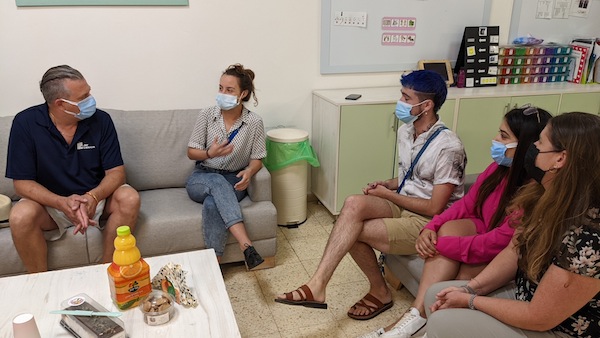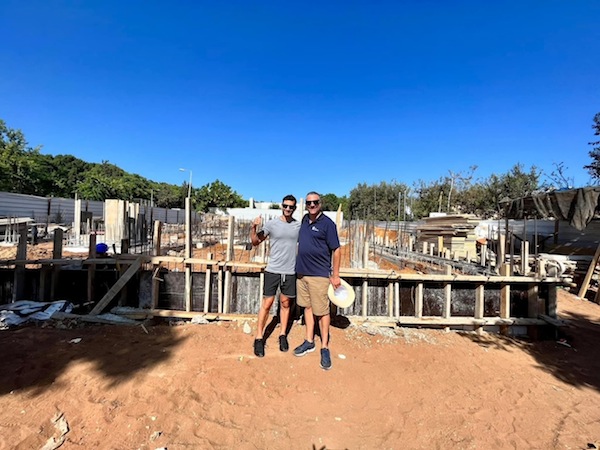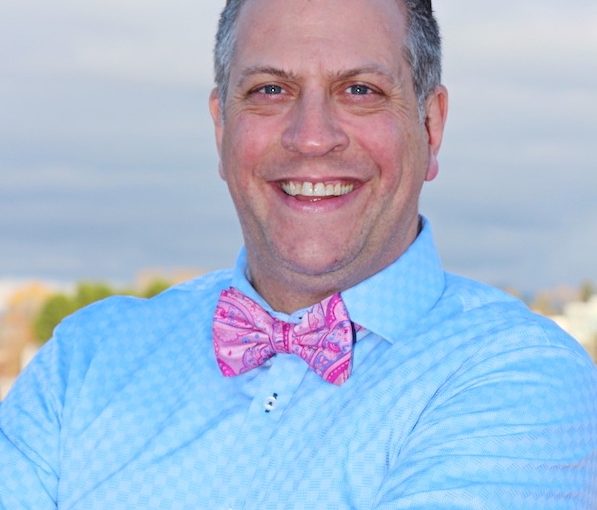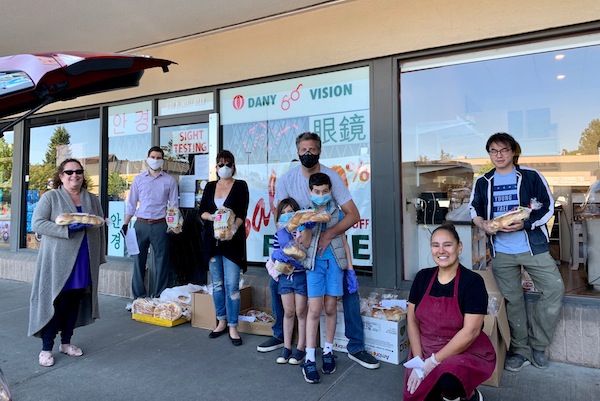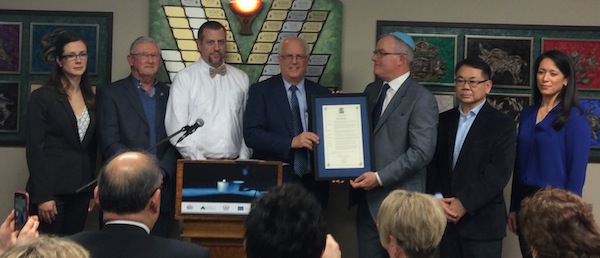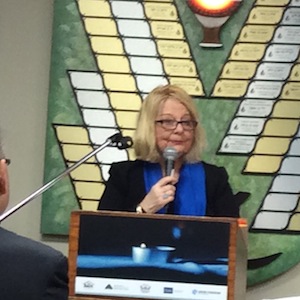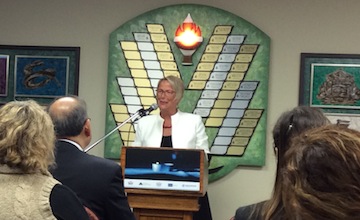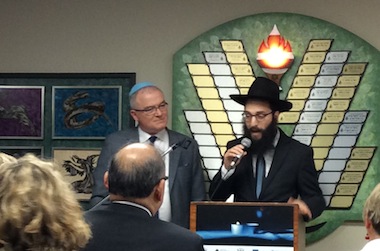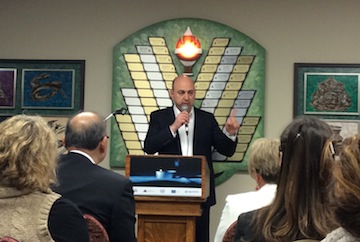Michael Sachs is the first director of Western Canada for the Friends of Simon Wiesenthal Centre. (photo from FSWC)
The role is new, but the face is familiar. On Sept. 15 last year, Michael Sachs took the helm as the first director of Western Canada for the Friends of Simon Wiesenthal Centre. No stranger to Vancouver’s Jews, Sachs has been at the forefront of community engagement for a long time – first as a volunteer and, more recently, as a communal professional.
Jews are in a changed world since Oct. 7, 2023, Sachs contended in a recent interview with the Independent. He had already made a major career change years ago, moving from diamond wholesaling to Jewish community service. When the Hamas terror attacks happened and antisemitism skyrocketed, he found himself just where he felt he could have the greatest impact.
For more than three years, Sachs was executive director of Jewish National Fund of Canada’s Vancouver branch.
“I felt blessed and privileged to be in a role at JNF at a time when Israel faced some of its darkest times, to be able to support Israel and to be able to support the people,” he said. “Over that year, we saw and felt a change, or a progression, in what it feels like to be a Jew outside of Israel.”
The world situation hastened the opening of FSWC’s Vancouver office.
“There always was a plan to open in Vancouver,” said Sachs, “but because of the speed at which the hate rose to such a level, the need caught up to that.”
Sachs had already accepted his new role by the time JNF lost its charitable status in a conflict with Canada Revenue Agency, a legal and administrative battle that is ongoing. Sachs said JNF was “blindsided” by the federal agency’s rescinding of the crucial charity imprimatur but that it was announced after his acceptance of the FSWC job and had no impact on his decision.
Among the highlights of his time with JNF was going into the schools and sharing stories of Israeli resilience and marking holidays like Yom Ha’atzmaut and Tu b’Shevat.
“We had a lot of great events,” Sachs said, despite the limitations of the pandemic. “We did really creative and out-of-the-box thinking on how we approached fundraising.”
For example, JNF transformed the Negev Dinner, which had been a relatively exclusive annual gala, into a “Negev Event,” with far more accessible ticket prices that allowed larger audiences to see and hear Israeli actor, author and activist Noa Tishby in 2023.
Strengthening partnerships with other organizations was also central to his mission at JNF, he said. That cooperation will continue, he promises, as FSWC takes its place amid the constellation of community organizations on the West Coast.
Sachs’s priority for his new office is to maximize FSWC’s antisemitism training and workshops, which they have been delivering to businesses, law enforcement, educational institutions and others.
“Our training is the gold standard for antisemitism training in Canada,” said Sachs.
Also top of his mission is continuing to build connections with existing agencies.
“We’ve worked closely with CIJA [the Centre for Israel and Jewish Affairs], we work closely with Federation, we work closely with Hillel, to assist and provide that support,” he said.
His office may be in Vancouver, but Sachs is responsible for the organization’s programs across the four Western provinces, and he foresees much more work with non-Jewish organizations across the West, as well as supporting isolated Jewish individuals and groups.
Michael Levitt, national president and chief executive officer of FSWC, heralded the opening of the branch office and Sachs’s hiring as a sign of positive things in difficult times.
“The focus of our work in terms of building a more inclusive and respectful society by educating Canadians about the lessons of the Holocaust and advocating for human rights, standing up against antisemitism and racism in all of its forms, could not be more pertinent and critical in today’s society,” Levitt told the Independent. “One of the things that makes us unique is we have a focus and a presence both in education spaces, which is certainly a core pillar of what we’re doing, but also in advocacy spaces.”
Strengthening, rather than competing with other organizations, is the goal, Levitt said.
“To be inclusive, to not have our elbows up, to look for opportunities to add expertise, but do it in a way that is collaborative and cooperative and empowers any of the partners that we work with – that’s very much what we’ve been doing in Toronto and across the east and central Canada,” said Levitt. “We want to be working hand-in-hand with as many of these organizations as possible.”
Sachs is the ideal person for the new role, according to Levitt.
“His door is always open,” Levitt said. “From the moment I met Mike Sachs, I just knew that he was a future face for our organization on the West Coast. His experience, his commitment, his passion for the Jewish community, particularly out in Western Canada, the important work he had done with another organization we worked closely with over the years, JNF. He had the relationships, he had the drive and he had the attitude that just fit so well into our core beliefs as a team.
“I can’t think of a better individual than Mike Sachs to fly the Wiesenthal flag out in Vancouver,” Levitt said.
Flying the flag on the West Coast is also due to the support of Gordon and Leslie Diamond, and Jill Diamond and the Diamond Foundation, Levitt added.
“Gordon is a long-time board member of FSWC and the family have been very active,” said Levitt.
Ezra Shanken, chief executive officer of the Jewish Federation of Greater Vancouver, has worked with Sachs in many capacities over the years and welcomed him to the newish role.
“Mike’s energy and passion for our community and for Israel are truly inspiring, and he is a dedicated partner in combating antisemitism,” Shanken told the Independent. “He is the definition of a community leader – always going above and beyond for the benefit of others. Beyond being a trusted partner in so many initiatives, he’s also a great friend. I know he’ll continue to have an incredible impact in this new role.”
While in the private sector, Sachs was also engaged in the community, variously as president of the Bayit synagogue, in Richmond, as a board member at Jewish Family Services and Vancouver Hebrew Academy. In 2017, he received Federation’s Young Leadership Award and was one of the Jewish Independent’s 18 Under 36. Sachs is married to Shira and they are raising Izzy, 11, and Desi, 9.
Born in Stamford, Conn., Sachs moved to Vancouver with his mom Sally and stepfather Marshall Cramer in 1993, when the late business leader and philanthropist Joe Segal hired Sachs’s stepfather to run the clothing retailer Mr. Jax.
“It was only supposed to be for a couple of years, but we fell in love with the city and the community,” said Sachs.
The family purchased and ran Kaplan’s Deli. Vancouver Jews might hang out among their own shul crowd, attend different summer camps or go to different schools, but smoked meat is the ultimate equalizer.
“A lot of people know me from being behind the counter at Kaplan’s,” said Sachs. “That’s where I got my real dive into the diversity of our community.”
It was during COVID that Sachs decided to make a major life change.
“Like everybody else, we furloughed for a period of time. I said to my wife, I want to go back and do something I love,” he said.
He loved the people he worked with in the diamond sector, he stressed, but his launch of a challah delivery service during the early weeks of the pandemic reminded him of the joy of engaging with people for a good cause.
“There were times that we delivered hundreds of challahs every week. It kind of opened my eyes that this is what I want to do,” Sachs said, defying the assumption that people don’t enter the nonprofit sector for the bread.

